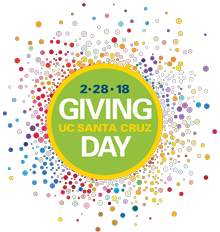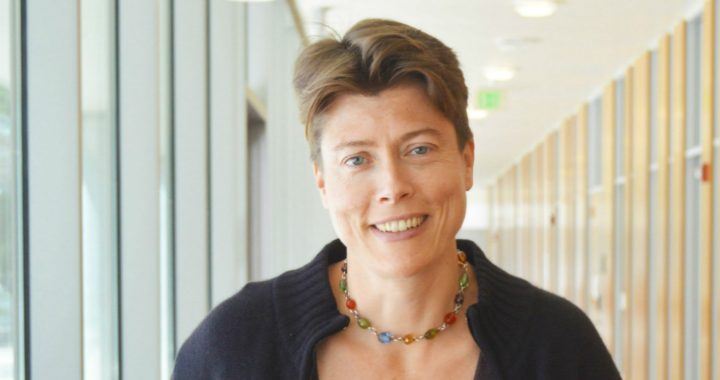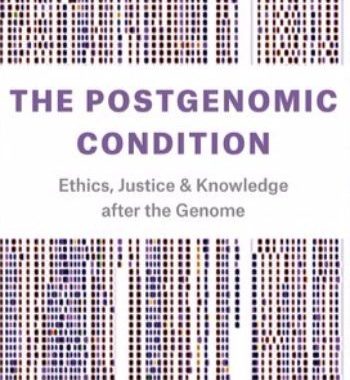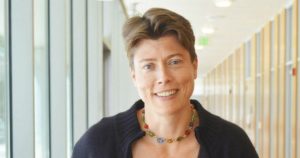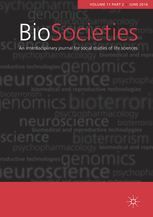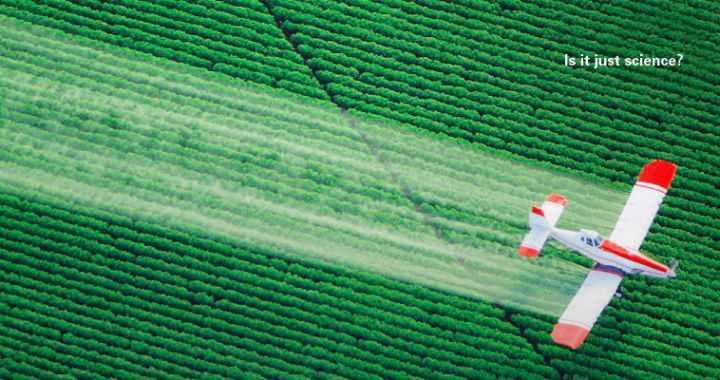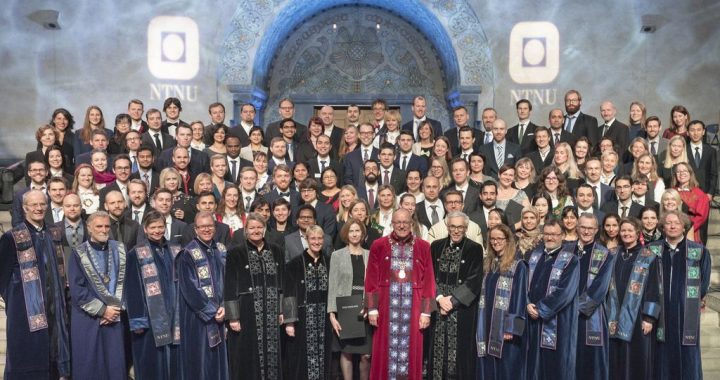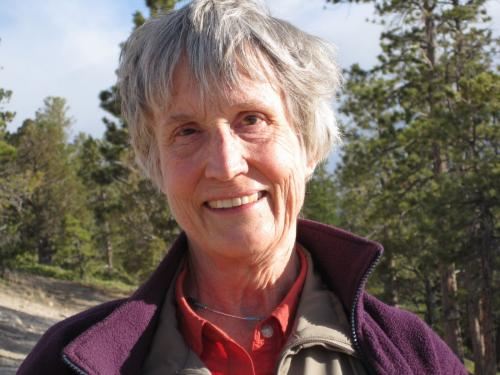Director’s Letter: Welcome to Science and Justice
The 2016-17 academic year proved a pivotal year for the Science and Justice Research Center. New faculty along with new initiatives led to a year of vibrant research and initiatives of importance not just to our campus, but to national and international efforts to forge science and justice. As you will read in the report that follows, members of our SJRC community led initiatives to address crises of trust and truth, and the attendant questions of justice, that have attended the rise of nationalism, xenophobia, and discontent with dominant institutions around the world. From saving critical environmental and public health data from elimination by the Trump Presidency, to creating novel socio-ecological justice initiatives in the Global South, to forging policy responses to new forms of social exclusion created by so-called gene editing, to responding to post-truth politics, the work of the SJRC has been in the headlines and making a critical difference in California, the nation and globally. This year alone our work has been supported by the National Science Foundation, the National Institutes of Health, the Fulbright Foundation, the Brocher Foundation and the Alexander von Humboldt Foundation, and recognized by numerous awards. Our writing continues to reach across the natural and social sciences, humanities and the arts, appearing in leading journals, from Nature to The Conversation, from Gigascience to Universitas Humanísticas.
The year also brought new leadership and a revamped governance structure. In October of 2016, Kate Darling joined us as our new Assistant Director. Darling recently received her PhD in Sociology from UC San Francisco, where she completed a doctoral dissertation on the challenges patients face as they encounter an increasingly bureaucratized, data-mediated regime of care. Darling, along with our dedicated Steering Committee, led our effort to review the Center, grew support for our graduate and undergraduate training programs, developed fundraising efforts, and cultivated our vital science and justice research and policy initiatives. Science and Justice postdoctoral fellow Melissa Eitzel Solera continued her NSF-supported collaborative work with the Muonde Trust in Zvishavane District of Zimbabwe, developing methods along with the community for modeling and synthesizing their long-term data to answer pressing concerns about sustainable environmental management.
As we look forward to the year to come, we appreciate this chance to pause and to share with you our accomplishments of the last year.
Jenny Reardon
Director, Science and Justice Research Center
Our Mission
The Science and Justice Research Center at the University of California, Santa Cruz, is a globally unique endeavor that innovates civic spaces and collaborative research practices for exploring the places where questions of science meet questions of justice. Understanding this joining of science and justice is a crucial step in building the capacities needed to create forms of science and technology that are more responsive to diverse needs and that address vital questions:
- Whose lives are supported by investments in high-tech science?
- Whose lives are erased or marginalized?
- How can scientists collaborate with other knowledge producers?
- How can collaboration lead to new research questions that push toward justice?
Through attention to these questions, members of the Science & Justice community come together across historic divides—between the natural and social sciences, academia and wider publics—to forge new strategies for building more just and equitable futures. Biomedical innovation, species extinction, toxic ecologies, healthcare reform and many other contemporary matters of concern provoke questions that traverse multiple intellectual, institutional and social worlds. We foster the alliances and cultivate the empirically rigorous research needed to address these challenges and help forge more livable worlds.
The Center is home to the Science and Justice Working Group, the Science and Justice Graduate Training Program, and several sponsored research projects and research groups. The initiative builds on the UC Santa Cruz campus’ historic commitments to social justice and strengths in science studies and interdisciplinary research.
Our Team
DIRECTOR | Jenny Reardon, Professor of Sociology
ASSISTANT DIRECTOR | Katherine Weatherford Darling, Adjunct Professor of Sociology
Co-DIRECTOR of the SJTP | Karen Barad, Professor of Feminist Studies
ADMINISTRATIVE ASSISTANT | Colleen Massengale
GRADUATE STUDENT RESEARCHER | Andy Murray, UCSC Sociology
SJRC Steering Committee
Karen Barad, Professor of Feminist Studies
Lindsey Dillon, Assistant Professor of Sociology
James Doucet-Battle, Assistant Professor of Sociology
Kristina Lyons, Assistant Professor of Feminist Science Studies
Jenny Reardon, Professor of Sociology
Katherine Weatherford Darling, Adjunct Professor of Sociology
Sustaining a Vibrant SJRC Community
The Science and Justice Research Center is the home of a vibrant and lively community of scholars. With offices in Rachel Carson College and Oakes College, SJRC hosts visitors from across the UC system and around the world. With collaborators and affiliates at UC Santa Cruz, the SJRC community is committed to sustaining an experimental and collaborative ecosystem for novel ideas, dialogues, methods and collaborations. The Science and Justice Working Group remains the experimental lifeblood of our collective work. We also host regular reading groups and experimental mixers with affiliated graduate students and faculty who seek to further investigate the meanings and practices of science and justice.
Highlights from the Science and Justice Working Group
We convene diverse speakers and community members in the experimental space of the Science and Justice Working Group. These experimental, convivial and novel spaces for discussion cultivate emerging connections, spark new questions for research, and nurture our communities’ collaborative ties. Below are a few of the events we hosted in the 2016-17 academic year.
The ‘Public Good’ of Genomics
On November 16, 2016, Steve Sturdy, Professor of the Sociology of Medical Knowledge at the University of Edinburgh and SJRC Visiting Scholar, explored the question of the ‘public good,’ and how it has been thought of and variously understood within the field of genomics. Lindsey Dillon, Assistant Professor of Sociology at UC Santa Cruz and Gretchen Gano, Associate Director of Research for the Center for Science, Technology, Medicine and Society at UC Berkeley served as discussants.
Legacies of HIV Activisms
On January 13, 2017, SJRC Visiting Scholar and UC Santa Cruz alum Alexis Shotwell, now an Associate Professor of Sociology and Anthropology at Carleton University, joined Debbie Gould (Associate Professor of Sociology) and SJRC Assistant Director Kate Weatherford Darling in conversation about HIV/AIDS activisms. Since the 1980s, HIV activists across the U.S. and Canada have deployed diverse survival strategies, tactics, policy demands. In the face of today’s current political challenges—including vast and growing economic inequalities, resurgent racism and homophobia, and retrograde health policy—their dialogue explored questions of the legacies of historical and contemporary HIV activisms.
Indigenous Water Guardians Decolonize Water Science
 As emblematized by the ongoing protests at Standing Rock, water is a foundational element—biophysical, epistemological, and spiritual—in Indigenous societies and lifeways. On January 24, 2017, Dr. Karen Bakker, Professor, Canada Research Chair, and Director of the Program on Water Governance at the University of British Columbia (www.watergovernance.ca), discussed how this crucial life source has come under increased threat due to the claimed necessity of extractivist development projects which impact the lives of all relations: human and more-than-human. Ben Crow (Professor of Sociology, UC Santa Cruz) and Kristina Lyons (Assistant Professor of Feminist Science Studies, UC Santa Cruz) joined the conversation.
As emblematized by the ongoing protests at Standing Rock, water is a foundational element—biophysical, epistemological, and spiritual—in Indigenous societies and lifeways. On January 24, 2017, Dr. Karen Bakker, Professor, Canada Research Chair, and Director of the Program on Water Governance at the University of British Columbia (www.watergovernance.ca), discussed how this crucial life source has come under increased threat due to the claimed necessity of extractivist development projects which impact the lives of all relations: human and more-than-human. Ben Crow (Professor of Sociology, UC Santa Cruz) and Kristina Lyons (Assistant Professor of Feminist Science Studies, UC Santa Cruz) joined the conversation.
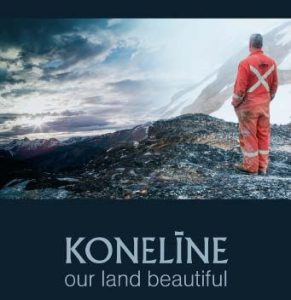 In addition to the Working Group event, Professor Lyons arranged for the January 23rd on-campus screening of, KONELĪNE: Our Beautiful Land, a sensual, cinematic celebration of northwestern British Columbia, and all the dreamers who move across it as directed by award-winning filmmaker Nettie Wild. Set deep in the traditional territory of the Tahltan First Nation, KONELĪNE captures beauty and complexity as one of Canada’s vast wildernesses undergoes irrevocable change.
In addition to the Working Group event, Professor Lyons arranged for the January 23rd on-campus screening of, KONELĪNE: Our Beautiful Land, a sensual, cinematic celebration of northwestern British Columbia, and all the dreamers who move across it as directed by award-winning filmmaker Nettie Wild. Set deep in the traditional territory of the Tahltan First Nation, KONELĪNE captures beauty and complexity as one of Canada’s vast wildernesses undergoes irrevocable change.
Professor Crow, who was awarded a grant from the UC Office of the President’s Innovative Learning Technology Initiative to create an online course on Water and Sanitation Justice, arranged filmed interviews with Karen along with event discussant Camille Pannu, who directs the Water Justice Clinic, a project of the Aoki Center for Critical Race and Nation Studies at UC Davis. Crow’s online course was first offered in Spring 2017 with enrollment far exceeding expectations and was again offered during summer session.
Against Purity
On January 25, 2017, SJRC Visiting Scholar and UC Santa Cruz alum Alexis Shotwell, Associate 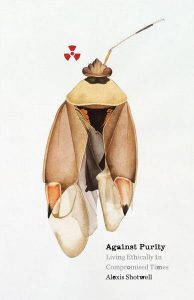 Professor of Sociology and Anthropology at Carleton University, was in conversation with Jess Neasbitt (History of Consciousness, UC Santa Cruz) about politics, movements and ethics in her new book Against Purity: Living Ethically in Compromised Times. Against Purity proposes a powerful new conception of social movements as custodians for the past and incubators for liberated futures. Against Purity undertakes an analysis that draws on theories of race, disability, gender, and animal ethics as a foundation for an innovative approach to the politics and ethics of responding to systemic problems.
Professor of Sociology and Anthropology at Carleton University, was in conversation with Jess Neasbitt (History of Consciousness, UC Santa Cruz) about politics, movements and ethics in her new book Against Purity: Living Ethically in Compromised Times. Against Purity proposes a powerful new conception of social movements as custodians for the past and incubators for liberated futures. Against Purity undertakes an analysis that draws on theories of race, disability, gender, and animal ethics as a foundation for an innovative approach to the politics and ethics of responding to systemic problems.
Post Conflict Battlefield Landscape Recovery – or Not?
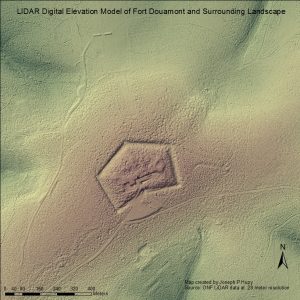 The multiple forms of disturbances rendered by conflict upon landscapes around the world demonstrate that this anthropogenic agent is an incredible force that is capable of exerting an influence on the environment in a wide variety of ways. Yet the bridge between geomorphology and environmental histories of battlefields is rarely made. On April 5, 2017, Joe Hupy (Associate Professor of Geography, University of Wisconsin – Eau Claire) examined two case study battlefields, and how post-conflict land-use patterns are tied into what we see on the contemporary landscape of today. Dr. Hupy emphasized in the presentation how various geospatial data collection tools and methods can be utilized with geospatial software to model the changes rendered to landscapes due to conflict, and to link these disturbances with modern land-use patterns. Joe uses Unmanned Aerial Systems as a tool to gather data, and hopes to revisit other world battlefields in collaboration with other researchers in different disciplines using this technology as a tool. Science and Justice Graduate Training Program Fellow Jeff Sherman (Politics) served as a discussant. The discussion afterwards turned to questions about the ethics of use of the data, and the lack institutionalized forums for formulating these ethical practices. The Working Group event was co-Sponsored by the Anthropology department and the Center for Creative Ecologies.
The multiple forms of disturbances rendered by conflict upon landscapes around the world demonstrate that this anthropogenic agent is an incredible force that is capable of exerting an influence on the environment in a wide variety of ways. Yet the bridge between geomorphology and environmental histories of battlefields is rarely made. On April 5, 2017, Joe Hupy (Associate Professor of Geography, University of Wisconsin – Eau Claire) examined two case study battlefields, and how post-conflict land-use patterns are tied into what we see on the contemporary landscape of today. Dr. Hupy emphasized in the presentation how various geospatial data collection tools and methods can be utilized with geospatial software to model the changes rendered to landscapes due to conflict, and to link these disturbances with modern land-use patterns. Joe uses Unmanned Aerial Systems as a tool to gather data, and hopes to revisit other world battlefields in collaboration with other researchers in different disciplines using this technology as a tool. Science and Justice Graduate Training Program Fellow Jeff Sherman (Politics) served as a discussant. The discussion afterwards turned to questions about the ethics of use of the data, and the lack institutionalized forums for formulating these ethical practices. The Working Group event was co-Sponsored by the Anthropology department and the Center for Creative Ecologies.
Seeing Like a Valley
Convened by Joseph Klett (SJRC Visiting Scholar and Fellow at the Chemical Heritage Foundation), with Fred Turner (Professor of Communications at Stanford) and SJRC Director Jenny Reardon, Seeing Like a Valley brought together scholars, policy makers, artists and practitioners on April 26, 2017 to understand the place of Silicon Valley in shaping not just new technologies, but moral visions. The panel explored how these visions help and hinder abilities to see and respond to today’s pressing issues and problems: growing inequalities and entrenched forms of discrimination; political polarization; declining trust in institutions; changing labor practices. The conveners asked people to respond to the prompt:
I am in [this position]. From here I see …. in Silicon Valley.
Highlights from the Science & Justice Experimental Mixers and Research and Reading Groups
In addition to the Science and Justice Working Group, the Center began the year with experimental mixers with our visiting scholars. Experimental Mixers are a lively and open space for all SJRC community members to present in-progress work and to troubleshoot conceptual, methodological and political issues they encounter in their research and practice. On February 1, 2017, Dr. Cleo Woelfle-Erskine, a UC President’s Postdoctoral Fellow in the Feminist Studies Department, presented his new work on fish culture. Beginning from archival photographs and texts from the first US salmon hatchery on Winnemem Wintu territory near Mt. Shasta, Woelfle-Erskine traced indigenous roots of western fisheries science and explored with us how different ethics of human-salmon relations persist in contemporary tribal and settler salmon science. Dr. Diana Bocarejo, Fulbright Fellow and Professor of Human Sciences at the Universidad del Rosario, Bogotá, Colombia, shared her work on the ways in which the water infrastructure built for the big agro-industries of banana and palm oil is constantly repurposed. She reflected on issues of scale in her own forms of intervention in relation to the rhythms and movements of the rivers and people with whom she works.
Throughout the year, a variety of reading groups convened. Reading Groups offer the community the chance to discuss key questions across disparate and interdisciplinary research literature. In the 2016-17 academic year, Professors Karen Barad and Kristina Lyons organized a Feminist Science Studies reading group with graduate students. Additionally, Science and Justice Training Program Fellows Paloma Medina (Biomolecular Engineering) and Vivian Underhill (Feminist Studies) organized visitors and affiliates for the Queer Ecology Reading Group.
Beyond these regularly scheduled events, SJRC also brought the campus community together during the days and weeks after the 2016 U.S. Presidential election to discuss ways forward. Professors Karen Barad and Donna Haraway took a leading role in drafting UCSC’s statement on the election and in hosting the J18 Teach-In on campus. Like many other campus centers and departments, the SJRC also drafted a statement on the U.S. election (see Appendix 3).
Science and Justice Graduate Training Program
SJRC affiliated faculty teach graduate students how to engage questions of science and justice together. In our graduate course, Science and Justice: Experiments in Collaboration, students from across all five divisions learn how to collectively address the moments where questions of science meet questions of justice. We teach science literacy to non-scientists, and teach scientists and engineers to see the political stakes and impacts of their work. We not only teach why it’s important to collaboratively ask questions, but also propose when and how to ask these questions. Graduate students who took the seminar Spring of 2016 will develop their final projects for the training program during the 2016-2017 academic year.
Under the leadership and guided vision of Assistant Director Kate Darling, this year these students took part in a “Co-Laboratory” or “Co-Lab.” Co-Labs met quarterly to build opportunities for interdisciplinary mutual support and professional development across the SJTP cohorts. Dr. Darling hosted sessions on proposal writing, public writing and peer review. Built with an ethic of mutual support, Co-Lab meetings allow fellows to provide each other generous feedback.
Visiting Scholars Program
Since 2009, the SJRC Visiting Scholars Program has been a vibrant hub for interdisciplinary scholars across the UC-system, the nation and the globe. The Science and Justice Research Center offers opportunities for visiting scholars at all levels of their career to participate in the SJRC community through research collaborations, reading groups and experimental mixers. In the 2016-2017 academic year, the Center hosted six visiting scholars:
Diana Bocarejo (Fulbright, Universidad del Rosario, Bogotá, Colombia)
Regan Brashear (Independent Documentary Film Maker, Director of Fixed: The Science/Fiction of Human Enhancement)
Joseph Klett (Chemical Heritage Foundation)
Alexis Shotwell (Carleton University, Ontario, Canada)
Steve Sturdy (University of Edinburgh, Scotland)
Cleo A. Woelfle-Erskine (UC Presidents Postdoctoral Fellow)
Justice Sparks Innovative and Original Research
The Science and Justice Research Center continues to be an exemplar in interdisciplinary programing, public dialogues and original research. Our socially engaged research practices hold justice at the core. In our work, we turn commitments to justice into collaborative research projects. We formulate new methods and institutional practices where scientists and engineers work alongside social scientists, ethicists, artists and diverse communities. SJRC affiliates pursue local, regional, national, and international research collaborations on issues that inform and affect institutional and public policy. Three themes focused our research this year:
De-Colonizing Knowledge: We ask how scientific practices and practitioners might be transformed through engaging with de-colonial thought and action.
Just Data: We ask how data infrastructures can design in a concern for justice into core practices and technical prowess.
Socio-Ecological Justice: We seek expansive practices of ecological justice that encompass world-sustaining relations and the intradependence of diverse forms of life.
A key success of the Science & Justice community is to support the original research of our graduate students, faculty affiliates and collaborators. Below is a sample of the research members of our community conducted just this last year.
Objectivity and Justice Research Cluster

During 2016-2017, Karen Barad convened a multi-disciplinary research group on Objectivity and Justice. The terms post-fact, post-truth, and post-reality are now being used to label the new era we have entered. We are already seeing the erasure of climate data from servers and websites, and purveyors of the truth, including climate scientists, journalists, and academics are being put on warning. Data refuge efforts are underway amid concerns that the Trump administration is waging a war on scientific expertise. At the same time that it is of utmost importance that facts, truth, and reality be asserted to counter the normalization of lies and fake news used to obscure the truth and manipulate the public, there is a large body of scholarship showing the non-innocent and often harmful use of these terms in ways that collude with the forces of power, including colonialism, racism, and militarism. This research cluster helped us think through these issues during these extraordinary times. During our first meeting, we talked about what the terms fact, truth, and reality signal to each of us. At our second meeting, we had a wonderful discussion of the last chapter of Hannah Arendt’s Origins of Totalitarianism (1951), and we came up with some different orientations to truth and objectivity we might usefully take in moving forward. For our third meeting, we read and discussed Octavia Butler’s Parable of the Sower (1993). For our fourth meeting, we discussed the classic film Inherit the Wind (1960), discussed the Science March, and continued our discussion of possible interventions.
Just Biomedicine Research Cluster
Just Biomedicine is a UC Santa Cruz-based research collective that examines the meeting of biomedicine, biotechnology, and big data along the Third Street corridor in the Mission-Bay neighborhood of San Francisco. Many hope that this convergence will democratize access to health information and produce revolutionary new medical treatments that new companies will make available to the public through market mechanisms. Yet, as in other domains, living with technoscientific transformations over time reveals how they produce new inequalities and injustices: new challenges to democratic governance; new surveillance regimes; and new forms of social stratification. These often-hidden justice dimensions can be hard to visualize and hard to stand up for. This is especially the case in the biomedical informatic domain, where criticism of specific developments can be interpreted as standing against developments in healthcare more generally. Nonetheless, stratified health and wealth outcomes manifest at this celebrated innovative edge of technoscience. Our collective seeks to understand and bring into view how this happens in the spaces and infrastructures that shape life on Third Street, and asks how we might help bring about a more just form of biomedicine.
The Just Biomedicine Research Cluster is convened by Jenny Reardon and Kate Darling. Undergraduate researcher Hannah Finnegold (Biology, Law & Society) was awarded the Koret Scholarship for her work with Just Biomedicine Research Cluster, and was selected as an Undergraduate Research Ambassador by UC Office of the President. Emily Caramelli (Sociology, Politics) built an interactive map of health and social inequalities and biotech profits in San Francisco. The student team was additionally selected for a 2017-2018 campus IDEA Hub fellowship to extend and expand their digital mapping project: Visualizing Health & Wealth in a California Biohub Through Digital Mapping.
Just Biomedicine Research Cluster Undergraduate Researchers
Hannah Finegold (Law and Society, Biology)
Rosemary Garcia (Latino and Latin American Studies, Biology)
Emily Caramelli (Sociology, Politics)
Laura Lopez (Sociology)
Amy Coffin (Biology, Philosophy)
Modeling Community and Ecosystem Interdependence
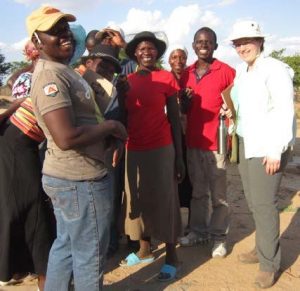
Melissa Eitzel-Solera with Zimbabwean colleagues
As a Science, Engineering and Education for Sustainability (SEES) postdoctoral fellow, Dr. Melissa Eitzel Solera worked with a community-based research team in rural Zimbabwe on several projects now in preparation for publication, including research on the flexibility of household networks to adapt to challenges, and another on the interdependence and feedbacks of their agro-pastoral system. In 2017, she wrote a ‘modeler’s manifesto’ describing how to do epistemologically sound statistical and computer modeling that reflects the way we actually learn about the world and that advances goals of justice.
Ensuring We Can Trust in the News
Sally Lehrman, award-winning journalist and SJRC Visiting Professor is currently leading The Trust Project to ensure that we can believe what we read in the newspapers and online. Lehrman is leading the effort to use online platforms and analytics to help both the public and news distribution systems to identify quality, ethically reported news amid the digital hubbub. Last year, through the Trust Project, she convened senior editors, designers and other journalism leaders to apply themselves to this problem in events held in the San Francisco Bay Area; New York; Washington, D.C.; and London. The team also has conducted in-depth interviews with members of the public to understand what people value in the news, what earns their trust, and when trust has been broken. Lehrman directs the project, which operates as a collaboration with news organizations in the U.S., Mexico, Canada and Europe.
Working for Social and Ecological Justice
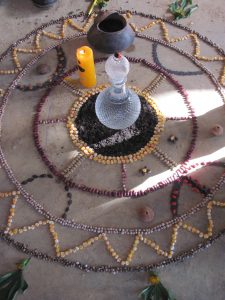
Dedicated to recovering seed diversity after thirty years experiencing the homogenizing effects of the Green Revolution and agro-industrial technical packets, small farmers participate in seed exchange rituals.
SJRC Professor Kristina Lyons’ research in Colombia examined the impacts of aerial fumigation and the War on Drugs on rural communities. Lyons accompanied a small farmer from Putumayo to testify in The Hague in 2016 at the Monsanto Tribunal and People’s Assembly along with farmers, indigenous communities, doctors, lawyers, researchers, independent scientists, and victims from five continents. Lyons currently has a manuscript under peer review entitled, Decomposition as Life Politics: Soil Practitioners and Vital Spaces across the Andean-Amazonian foothills of Colombia, based on more than ten years of fieldwork in Colombia where she engaged in an ethnography of human-soil relations with scientists and farmers.
Lyons was awarded the Junior Scholar Prize from the Anthropology and Environment Section of the American Anthropological Association for her 2016 article published in Cultural Anthropology similarly titled “Decomposition as Life Politics: Soils, Selva and Small Farmers Under the Gun of the U.S.-Colombia War on Drugs.” The Society for Cultural Anthropology awarded the 2017 Cultural Horizons Prize to Kristina for the article, which appeared in Cultural Anthropology 31, no. 1 (2016): 56-81.
Investigating Biomedicalized Bureaucracies
SJRC Assistant Director Kate Darling completed her doctoral research in Fall 2016, shortly after joining UC Santa Cruz. Her dissertation, Chronic Crisis: Managing HIV as a Chronic Condition in Biomedicalized Bureaucracies earned the Distinguished Dissertation Award from the UC San Francisco Sociology Program. Based at a San Francisco HIV clinic that was an early epicenter of the HIV/AIDS epidemic and later became a hub of biomedical research and a global model for HIV care, her research ethnographically traced how patients and healthcare providers navigated biomedical bureaucracies and health insurance markets. In 2017, she was selected to participate in a research and writing residency at the Brocher Foundation in Switzerland to disseminate her dissertation findings and conduct archival research at the World Health Organization.
Building Data for a Just Future

Original watercolor artwork produced by UCSC undergrad Morgan Smith for the May 2016 Just Data? conference.
Building on the success of the NSF funded 2016 meeting Just Data? Justice, Knowledge and Care in an Age of Precision Medicine the meeting brought leaders in biomedicine, public health, genomics, science and technology studies, law and ethics to the UCSC campus to create the ‘science and justice’ agenda for a world in which ‘big data’ is seen as the future of biomedicine. In 2016-17, Reardon and Weatherford Darling worked together to push biomedical and science policy leaders beyond narrow questions of privacy and consent. They helped to found Science FARE (feminist, anti-racist, equity), a writing collective that published a letter in Nature magazine calling for the inclusion of justice question in the research agenda of the Chan-Zuckerburg supported BioHub. They also began work co-editing a Thematic Collection for Engaging Science & Technology Studies with collaborators from the 2016 Just Data Dialogues hosted by SJRC.
Additionally, SJRC Steering Committee member Lindsey Dillon also served as a founding member of EDGI the Environmental Data and Governance Initiative. In the wake of the election of Donald Trump, EDGI is working to secure public access to important environmental datasets, including ones on EPA, NASA, and Department of Energy websites. Dillon discussed her work with EDGI in a recorded talk with Ars Technica and campus writers highlighted this work.
Genomics and Justice
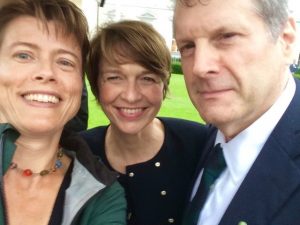
SJRC Director Jenny Reardon with the First Lady of Germany, Elke Büdenbender, and historian of science, Myles Jackson at Humboldt Awards reception.
SJRC continues active and collaborative research about the politics of genomics. Jenny Reardon was awarded the 2017 Friedrich Wilhelm Bessel Research Award from the Humbolt Foundation based in Germany for her field-changing work in this area. The award recognizes scholars who have earned lifetime achievements in research. In addition, award recipients are invited to spend a year collaborating with specialist colleagues in Germany to carry out their proposed research projects. Reardon and her collaborators will explore how the rise of big data’ is changing interpretive practices in the life sciences and life scientists’ understandings of and relationships to life. While centered on the life sciences, and in particular on genomics, the research aims to produce insights about how the rise of informatics and big data are changing what it means and entails to produce knowledge across the natural and social sciences, and how those changes also entail shifts in what it means to act in an ethical and democratic manner. The study will investigate how different legal and scientific approaches to the management and governance of genomic data create different practices of interpretation that entail different conceptions of knowledge and justice.
Water and Sanitation Justice
A team of interdisciplinary scholars at UC Berkeley, UC Davis and UC Santa Cruz led by S&J Advisor and Sociology Professor Ben Crow offered the first available course on Water and Sanitation Justice, a multimedia, online course available to all UC students.
Students explored questions of water and sanitation justice in the global north and global south addressing water access, equity and justice; international development; public health; gender and income inequality; and environmental science and policy.

Indigenous water defenders with lit letters spelling Water is Life Water is a Right at night with reflection in the water
Creating a UCSC Ethics in Practice Curriculum
Today many forms of scientific evidence are met with skepticism and mistrust, and our healthcare systems are challenged by entrenched inequalities and profit motives. The next generation of leaders in biomedical and life sciences, environmental science, and engineering will need to be adept at addressing these challenges. At SJRC, we believe this requires bold new approaches to teaching ethics and practice in STEM fields. We strive to exceed these narrow standards for the ethical approval of science and prepare our students to be powerful stewards of socially robust science. Our vision of good science exceeds simple compliance with institutional mandates.
Our partnerships with National Institutes of Health T32 training programs at UC Santa Cruz strengthen these efforts. In 2009, the NIH revised their guidance for training in the responsible conduct of research to encourage substantial face-to-face discussions among the participating trainees and a combination of didactic and small-group discussions. SJRC continues to be a key partner in training biological and life science graduate students. Professor Weatherford Darling participated in the BME program’s “Bootcamp” for incoming students in Fall 2017 and will participate in the Responsible Conduct of Research Fall 2017 lecture series organized by Susan Strome (UCSC Molecular, Cell and Developmental Biology) as part of their T32 training. Professors Reardon and Darling are also working with Ed Green, Associate Professor of Biomolecular Engineering, who successfully received a NIH genomics training grant, to provide ethics training to incoming graduate students in biomedical science and engineering. In the 2017-2018 academic year, SJRC’s Assistant Director of Research and Academic Programs, Kate Weatherford Darling, will reach out to the principal investors of NIH training grants to strengthen collaborative graduate training in ethics and justice.
Reflecting on Our Progress
The 2016-2017 academic year marked the end of our fifth year as a research center. Reflecting on our progress, growth and the challenges ahead, we embarked on the second year of self-study. Weatherford Darling and Administrative Assistant Colleen Massengale interviewed center directors and leaders from interdisciplinary research centers and institutions from across North America and Europe to collect ideas from colleagues about how to best organize and structure SJRC. Massengale and Sociology Department Manager Jessica Lawrence have been working to better understand who is responsible for which administrative tasks related to running the Center, and when and where the Center can ask for support from the Department or from the Division.
Based on the research we conducted and feedback we received, we updated and revised the process of faculty affiliation to focus on how the Center can provide effective support to the educational and research efforts of our diverse faculty community. We updated and streamlined our leadership structure, and formed a Steering Committee to lead the Center, and added pages about how students and faculty can get involved on the new Center website. The website also now provides undergraduates with information about how they can build an Independent Major in Science and Justice. This will be an excellent building block should the center evolve into a program.
Looking Ahead
In early 2018, the SJRC leadership team and Steering Committee will conclude the self-study process with a day-long retreat to further discuss the aims and goals of the Center moving forward, including the learning objectives and structure of the Science and Justice Training Program, fundraising strategies, and long term support. This self-study and review process has allowed us to better understand known institutional and staffing support challenges. Refining Center practices and documenting them in the SJRC Handbook, has allowed the SJRC to better share these practices with our affiliates.
In the Fall 2018, we will embark on a formal review process that will provide SJRC with the opportunity for feedback in continuing to improve the organization and practices of the Center, and help us identify key opportunities for additional training, research and funding collaborations.
As we look to the future, we seek to continue to build SJRC as a hub for extramural funding of research projects with links to science and justice. In developing future research collaborations, we seek collaborators from across all divisions and the UC system. We will continue to provide a critical and dynamic space for the intellectual, organizational and moral support of the diverse needs of our faculty and students.
Funding the Future of Science & Justice
We are not just another obscure academic research center generating scholarly papers. The SJRC has become a dynamic and collaborative infrastructure for training the next generation of humanities, natural and social science researchers who will still be trained and supported to pursue their research and make discoveries, but will do so in ecosystems where ethics and justice are primary concerns. Feedback from other institutions, including the NSF and journal article peer-reviews, indicate that the SJTP has developed a much-needed model for cross-disciplinary training. A central goal of the Center is to create learning models that can be replicated and applied in academic and non-academic institutions worldwide. Additional grant funding and donor contributions will secure our efforts to build an internationally recognized program that trains the next generation of scholars to responsibly take up the important social and scientific problems of our time.
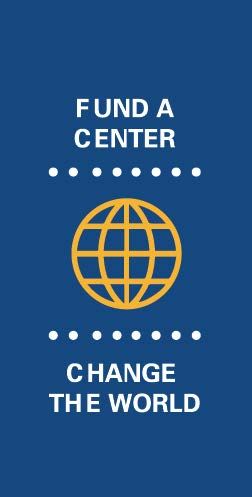 In 2016-2017, SJRC leadership, faculty-affiliates and staff worked with the UCSC Academic Senate Committee on Fundraising and Development and University Relations and Development to develop strategies for funding the future of science and justice at UCSC. We worked with Fly Communications to develop a fundraising brochure and created a campaign for UCSC’s annual Giving Day. Our ambitious fundraising goals and sustained efforts to pursue grant and foundation funding will continue the growth and vitality of our work and community. We developed case statements and concrete fundraising goals for the research center and for the graduate training program. Our immediate grant-writing and fundraising goals include fellowship support for the Science & Justice Graduate fellows, and support for Center staff. With the support of the SJRC Steering Committee, we will continue to pursue grants to support the Center’s collaborative research, training and advocacy activities.
In 2016-2017, SJRC leadership, faculty-affiliates and staff worked with the UCSC Academic Senate Committee on Fundraising and Development and University Relations and Development to develop strategies for funding the future of science and justice at UCSC. We worked with Fly Communications to develop a fundraising brochure and created a campaign for UCSC’s annual Giving Day. Our ambitious fundraising goals and sustained efforts to pursue grant and foundation funding will continue the growth and vitality of our work and community. We developed case statements and concrete fundraising goals for the research center and for the graduate training program. Our immediate grant-writing and fundraising goals include fellowship support for the Science & Justice Graduate fellows, and support for Center staff. With the support of the SJRC Steering Committee, we will continue to pursue grants to support the Center’s collaborative research, training and advocacy activities.
SJRC’s promise is simple and bold. The benefits are manifold: improved outcomes are not just for humans, but for the many non-human lives as well; approaches to science and technology that balance prosperity and justice, health, ecological survival and ethics are key. Our affiliated researchers and interdisciplinary teams have built decades of scholastic expertise examining the life sciences and biomedicine, health, environment, food, and racial and economic justice. The Center provides the critical milieu in which the creative sharing of this expertise leads to novel justice praxis and knowledge sharing that fosters and supports diverse lives and futures.
Appendix 1: SJRC Steering Committee Publications
Dillon, Lindsey, and Julie Sze. “Police Powers and Particulate Matters: Environmental Justice and the Spacialities of In/securities in US Cities.” English Language Notes (2016).
Dillon, Lindsey. “Cleaning Up Toxic Sites Shouldn’t Clear Out the Neighbors.” July 11, 2017, The Conversation, accessed at https://theconversation.com/cleaning-up-toxic-sites-shouldnt-clear-out-the-neighbors-74741
Christopher Sellers, Lindsey Dillon, Jennifer Liss Ohayon, Nick Shapiro, Marianne Sullivan, Chris Amoss, Stephen Bocking, Phil Brown, Vanessa De la Rosa, Jill Harrison, Sara Johns, Katherine Kulik, Rebecca Lave, Michelle Murphy, Liza Piper, Lauren Richter, Sara Wylie. “EPA Under Siege: Trump’s Attack in History and Testimony.” The Environmental Data and Governance Initiative. Accessed at https://100days.envirodatagov.org/epa-under-siege/
Dillon, Lindsey. “Pandemonium on the Bay: Naval Station Treasure Island and the Toxic Legacies of Atomic Defense.” in Horiuchi, Lynne, and Tanu Sankalia, eds. Urban Reinventions: San Francisco’s Treasure Island. University of Hawaiʻi Press, 2017.
Doucet-Battle, James. 2016. “Bioethical Matriarchy: Race, Gender, and the Gift in Genomic Research” Special Issue: “Nothing/More: Black Studies and Feminist Technoscience” Catalyst: Feminism, Theory, Technoscience 2(2): 1-28.
Doucet-Battle, James. 2016. “Sweet Salvation: One Black Church, Diabetes Outreach, and Trust” Transforming Anthropology 24(2): 125-135.
Lyons, Kristina. Forthcoming (2017). “On the Situated Politics of Analytic Symmetry,” Critical Perspective for a special issue on Engaging Decoloniality and Decolonization in and at the Interfaces of STS in Catalyst: Feminism, Theory, Technoscience.
Lyons, Kristina. Forthcoming (September 2017). “Guerra Química en Colombia y Ecologías de la Evidencia: Senti-actuando Prácticas de Justicia.” [Chemical Warfare, Evidentiary Ecologies: Feel-acting Practices of Justice.] Article for a special edition on Socio-environmental Studies and Political Ecology in Universitas Humanísticas 84, Pontificia Universidad de la Javeriana, Bogotá.
Lyons, Kristina. 2017. ¿Cómo sería una paz territorial?: Iniciativas de Justicia Socioecológica en el Sur [How might a territorial peace be imagined? Initiatives of Socioecological Justice in the South]. A la orilla del río. May 25. http://alaorilladelrio.com/tag/kristina-m-lyons/
Lyons, Kristina. 2016. “Decentering “the human” at the interfaces of anthropology and science studies?” Savage Minds: Notes and Queries in Anthropology. Blog series: Decolonizing Anthropology. December 12. http://savageminds.org/2016/12/12/decentering-the-human-at-the-interfaces-of-anthropology-and-science-studies/
Reardon, Jenny. Forthcoming in Fall 2017. The Postgenomic Condition: Ethics, Justice, and Knowledge After the Genome (Chicago: University of Chicago Press).
Reardon, Jenny. 2016. “The Genomic Open.” Limn Issue 6. Accessible at http://limn.it/the-genomic-open/.
Jenny Reardon, Rachel A. Ankeny, Jenny Bangham, Katherine W. Darling, Stephen Hilgartner, Kathryn Maxson Jones, Beth Shapiro, Hallam Stevens, The Genomic Open workshop group; Bermuda 2.0: reflections from Santa Cruz. Gigascience 2016; Vol. 5 (1): pp. 1-4. https://doi.org/10.1093/gigascience/giw003
Science FARE (Feminist Anti-Racist Equity) Collective (Charis Thompson, Laura Mamo, Jenny Reardon, Ugo Edo, Jessica Cussins and Katherine Weatherford Darling, founding members). 2016. “Social Science: Include Social Equity in California Biohub.” Nature Vol. 538(7625): pp. 371–371.
Sara L. Ackerman, Katherine Weatherford Darling, Sandra Soo-Jin Lee, Robert A. Hiatt Janet K. Shim “The Ethics of Translational Science: Imagining Public Benefit in Gene Environment Interaction Research”, Engaging Science and Technology Studies Vol. 3 http://estsjournal.org/article/view/152
Appendix 2: SJRC Steering Committee Awards
Karen Barad, honorary doctorate in the Arts at the University of Gothenburg (Sweden)
Kristina Lyons, Junior Scholar Prize from the Anthropology & Environment Section of the American Anthropological Association; Cultural Horizons Prize from the Society for Cultural Anthropology
Jenny Reardon, Friedrich Wilhelm Bessel Award, Humboldt Foundation
Katherine Weatherford Darling, Brocher Junior Scholar Award
Appendix 3: Funders
GRANTS
SEES Fellows: Understanding Resilience in a Complex Coupled Human-Natural System: Integrating Qualitative and Quantitative Information and Community-Based Action Research.
Funding Agency: National Science Foundation
Principal Investigator: Jenny Reardon (for Melissa Eitzel Solera)
Amount: $520,412
Open Data/Private Persons: Forging a New Social Contract for Biomedicine in an Age of Genomics and Big Data
Funding Agency: National Science Foundation
Principal Investigator: Jenny Reardon
Amount: $25,000
MAJOR SPONSORS
Center for Biomedical Science and Engineering
Division of Graduate Studies
Division of Humanities
Division of Physical & Biological Sciences
Division of Social Sciences
Fulbright Foundation
The UC Santa Cruz Genomics Institute
Jack Baskin School of Engineering
Molecular, Cell, and Developmental Biology Department
Office of Research
Research Mentoring Institute
Sociology Department
SJWG EVENT CO-SPONSORS
Anthropology Department
The UC Santa Cruz Center for Creative Ecologies
The UC Santa Cruz Institute for Humanities Research
Sociology Department
Appendix 4: SJRC statement on 2016 US Presidential Election
In the wake of the 2016 Presidential Election of Donald Trump: a Statement from the UCSC Science and Justice Research Center
Dear Science and Justice Friends, Colleagues, Allies and Communities,
Like many of you, all of us at SJRC have been reflecting, re-grouping and gearing up for action in light of the November 2016 US presidential election. We are re-committing to our core values and standing in solidarity with all those threatened by state sanctioned violence and repressive policies. We will work to empower and support students, staff, scholars and scientists through collaborative research and action:
- We will oppose threats to defund science, the Environmental Protection Agency and other crucial regulatory agencies, healthcare programs, and sanctuary cities.
- We will oppose the surveillance and targeting of professors (e.g. the Professor Watchlist) and climate scientists, Muslim communities (e.g. the “Muslim Registry”), undocumented immigrants, and community activists from diverse backgrounds and movements.
- We will support sanctuary campuses and safe spaces at UCSC, defend academic freedom in and beyond universities, academic freedom, oppose censorship and provide a platform for the views and research of our affiliates to create broad impacts across multiple audiences.
- We will continue to draw on our critical resources as feminist decolonial anti-racist science studies scholars to re-claim and enrich our commitments to objectivity, truth and social and environmental justice. In the face of “fake news”, climate denialism, new instantiations of eugenics, and all efforts to de-legitimize and de-fund science, we will fight for situated, robust and responsive inquiry and critical engagement. We will work to make our concepts/categories adequate for the present moment.
- We will build a public archive of the dismantlement of knowledge production, critical regulatory institutions, and healthcare and environmental infrastructures. We will track the efforts afoot to dismantle the EPA, repeal the ACA and privatize Medicare, and the attacks made against individual scientists, institutions, and disciplines.
- We will support our graduate and undergraduate students in pursuing “seedling” research and community action projects that can rapidly and flexibly respond to the problems, questions, and mobilizations that are most urgent.
- We will fight against racism, white supremacy, anti-semitism, Islamophobia, xenophobia, ableism, homophobia, transphobia, sexism, and misogyny, and assaults on poor and historically marginalized people both here in the US and worldwide.
- We will continue to work from a place of caring response-ability, mutual support and fierce solidarity.
President Napolitano, Chancellor Blumenthal and members of the California Legislature have made statements to affirm their commitments to inclusion and diversity, and in particular in support of undocumented members of our UC community. We offer our unqualified support for all undocumented communities in California, and in particular support the UC’s commitment to the privacy and civil rights of everyone in our community. We stand with these leaders, and we promise to hold ourselves accountable when our actions and policies fall short.
In solidarity,
Science and Justice Research Center leadership, staff and faculty-affiliates
#UCSCvalues


